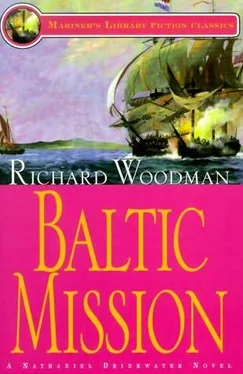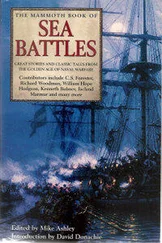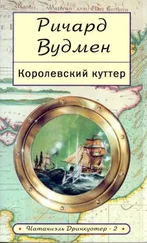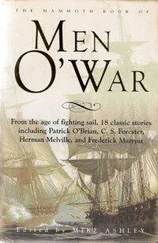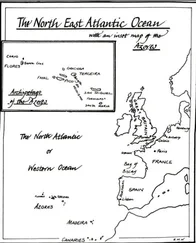Ричард Вудмен - Baltic Mission
Здесь есть возможность читать онлайн «Ричард Вудмен - Baltic Mission» весь текст электронной книги совершенно бесплатно (целиком полную версию без сокращений). В некоторых случаях можно слушать аудио, скачать через торрент в формате fb2 и присутствует краткое содержание. Жанр: Морские приключения, Исторические приключения, на английском языке. Описание произведения, (предисловие) а так же отзывы посетителей доступны на портале библиотеки ЛибКат.
- Название:Baltic Mission
- Автор:
- Жанр:
- Год:неизвестен
- ISBN:нет данных
- Рейтинг книги:5 / 5. Голосов: 1
-
Избранное:Добавить в избранное
- Отзывы:
-
Ваша оценка:
- 100
- 1
- 2
- 3
- 4
- 5
Baltic Mission: краткое содержание, описание и аннотация
Предлагаем к чтению аннотацию, описание, краткое содержание или предисловие (зависит от того, что написал сам автор книги «Baltic Mission»). Если вы не нашли необходимую информацию о книге — напишите в комментариях, мы постараемся отыскать её.
Written in 1988, Baltic Mission is an installment in Woodman's Nathaniel Drinkwater series. This episode finds the British sailor on a secret assignment for the crown while Napoleon continues to acquire real estate. Drinkwater is soon at odds with his crew and hamstrung by his drunken first mate.
Baltic Mission — читать онлайн бесплатно полную книгу (весь текст) целиком
Ниже представлен текст книги, разбитый по страницам. Система сохранения места последней прочитанной страницы, позволяет с удобством читать онлайн бесплатно книгу «Baltic Mission», без необходимости каждый раз заново искать на чём Вы остановились. Поставьте закладку, и сможете в любой момент перейти на страницу, на которой закончили чтение.
Интервал:
Закладка:
'Or peace, Captain, or peace. Do not let us be too pessimistic,' Barrow continued smoothly. 'In the meantime I shall see what's to be done about a new lieutenant.' Barrow began to gather up the papers and tie a pink tape around them.
'And the shattered state of my ship, sir, have you considered that?'
'Of course! There are orders for you being prepared in the copy-room. You will turn your ship's company over directly into the Patrician, a razeed sixty-four and a particularly fine sailer. She is at Chatham and wants only men ... your men.'
'And myself, sir?' he asked, numbed by this news but thinking of his wife and Tregembo and the simple desire of a man to go home. 'Am I also affected by this proscription?'
Barrow looked up. 'I think it best that you are on shore as little as possible, Captain Drinkwater. The increasing desertions of men are most often noticeable where the commanding officer sleeps out of his ship. You know the regulations.'
Drinkwater stood and gripped the back of his chair in an effort at self-control. 'I had believed that I and my ship's company had earned a measure of respite, having rendered the State a signal service, Mr. Barrow. Some of my men have not stepped ashore since the last Peace, God damn it!'
Barrow stared at him and Drinkwater saw with a certain degree of satisfaction that he had at last provoked the man. 'There is no doubt that your service has been most satisfactory, Captain Drinkwater. I thought I had been at some pains to make that clear to you,' Barrow said frigidly, 'but there is no respite for any of us. Every effort will continue to be made ...'
'I do not think I need to be taught my business, Mr. Barrow!'
The two men glared at each other. Barrow's ruthless ability was an admired fact; he was an accomplished administrator with a task of great complexity, but he had little appreciation of a captain's predicament. Duty was obvious, while Drinkwater's sense of obligation to his crew was a tiresome liberality. Nothing of this conflict seemed clear to Barrow.
'No, I am sure I do not, Captain,' Barrow conceded. Then he added, 'But do not forget to forward your logs — privately, you understand.'
Drinkwater stared for a moment at the little heap of Admiralty papers that were now being neatly bundled up in pink tape. How fatuous his conversation with Lord Dungarth now seemed. As Barrow's fingers formed a bow in the pink tape the act was symbolic of dismissal. Tired, angry and disgusted, Drinkwater made for the door.
'One thing more, Captain Drinkwater.' Drinkwater turned on the threshold.
'The matter of the eighty thousand sterling you conveyed to the Baltic. Unfortunately His Majesty King Gustavus saw fit to impound it for his own use. It never reached the Tsar. Unhappily you will be deprived of your customary percentage...' Drinkwater recalled his promise to his men, but Barrow had not yet finished with him.
'One wonders, if it had reached Alexander as intended, whether he might not have remained faithful to the alliance. Good day, Captain.'
Half choking with anger Drinkwater stepped out into the corridor.
Copenhagen
Admiral Gambier's fleet of over three hundred men-of-war and transports lay at anchor off the village of Vedboek. To the west of the anchored ships, amid the low wooded hills and red-roofed villages of the island of Zealand, an expeditionary force of the British Army and King's German Legion advanced on the Danish capital of Copenhagen. Field howitzers were already bombarding the city's defences and the thunder of the cannonade, the whistling of the arcing shells and the violent concussions of the exploding carcasses could be heard miles away.
In accordance with his instructions the army commander, Lord Cathcart, had demanded the surrender of the Danish fleet in exchange for an annual payment to be made for as long as was necessary. The Danes had refused the terms, voluntarily submitting their capital to bombardment rather than their honour with their ships.
When darkness fell the night was bright with the traces of shell-fire, and over Copenhagen the dense pall of smoke rose into the sky, its billowing under-belly orange with reflected flame.
A few days later the rape of the Danish fleet was completed, and Admiral Gambier sailed homewards with his prizes.
Author's Note
The means by which the British Government learned of the secret articles of the Treaty of Tilsit remain a mystery to this day. Whilst historians may speculate upon probabilities, the novelist enjoys the greater freedom of exploring possibilities. Nevertheless I have tried not to abuse this privilege and have spun my yarn with the few known facts.
The most likely contender for the role of the spy beneath the raft is Colin Alexander Mackenzie, a known British agent who had seen service in the Russian army and was a good linguist. A century after the event his family revealed his close connection with the incident (English Historical Review, Vol. XVII, p. 110,1902). Although this is inconclusive, Canning's steadfast refusal to name his source does suggest a vulnerable individual who remained at large in a suddenly hostile Russia. But Mackenzie was known to the Tsar, and dined with Alexander when he entertained Talleyrand. He may, therefore, have been too conspicuous to have been the actual eavesdropper, though he knew all about it. Circumstantial evidence of his possible arrival in London is not confirmed, but is put after 16 July, when Canning wrote his instructions to Gambier and Cathcart for the attack on Copenhagen. Talleyrand himself may have supplied some information, for his betrayal of Napoleon dates from Tilsit, and he occupied the Foreign Ministry of France throughout the transition from Napoleonic to Bourbon rule in 1815, when the French copy of the treaty is alleged to have disappeared. However, he was not under the raft, nor were any of the other Britons known to have been in Russia at the time, such as Lords Leveson-Gower and Hutchinson, Robert Wilson or Dr Wylie, who were kept at a discreet distance.
The intrigues of the Russian court will never be known, but there are several contenders for the role of, at least, accomplice. The Vorontzoff family have been closely connected with the secret, even cited as providing the spy. Leaked information may also have come from Bennigsen, and the British Foreign Office is said to have papers alleging his part in a plot to kill Alexander.
The most intriguingly 'useful' fact is the existence of a letter quoted by Dr. Holland Rose, dated 26 June from Memel, from an anonymous officer in the Russian service.
The speed with which the intelligence arrived in London could have been achieved by land or sea. It was a hot summer, 'the labourers fainting in the fields', with little wind and an anti-cyclone over the North Sea. My preference for the frigate Antigone is obvious, but lent credence by Richard Deacon's remark in his History of the British Secret Service that much information was gathered by cruisers of the Royal Navy. Government secrecy, of course, ensured that Antigone's log book cannot now be found in the Public Record Office!
Much of the credibility of the story rests on the exact nature of the 'raft'. Lariboissiere's engineers certainly had a hand in its adaptation and there are hints of the employment of local labourers. The anonymous Russian officer, quoted by Holland Rose, calls the thing a pont volant, suggesting the use of an existing 'flying bridge' such as are believed to have been used for moving cattle across the lower reaches of the river. It is this supposition I have favoured in view of the period of concealment and the details claimed by the Mackenzie family.
Читать дальшеИнтервал:
Закладка:
Похожие книги на «Baltic Mission»
Представляем Вашему вниманию похожие книги на «Baltic Mission» списком для выбора. Мы отобрали схожую по названию и смыслу литературу в надежде предоставить читателям больше вариантов отыскать новые, интересные, ещё непрочитанные произведения.
Обсуждение, отзывы о книге «Baltic Mission» и просто собственные мнения читателей. Оставьте ваши комментарии, напишите, что Вы думаете о произведении, его смысле или главных героях. Укажите что конкретно понравилось, а что нет, и почему Вы так считаете.
